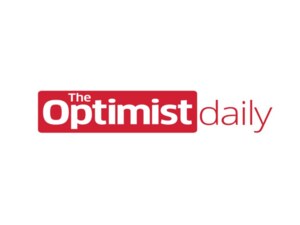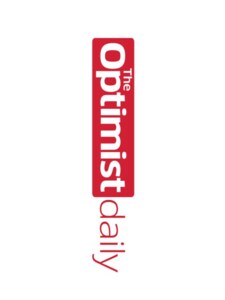BY KRISTY JANSEN AND AMELIA BUCKLEY
KRISTY: Last Saturday I ventured out to the local Costco. My household was down to our last few rolls of toilet paper, and my 75 year old mother’s household – where she’s been in self-protective isolation with her two 70+ housemates for the past month – had run out of flour. As we all know, both these items have been surprisingly difficult to obtain, along with eggs and potatoes, Lysol and hand sanitizer. It had been a few weeks since I had been to a superstore, and based on neighborhood information, I knew I would have to get there early if I wanted the best chance to score some of that precious TP. So I skipped a weekly family Facetime event, wrapped my face in a tightly woven cotton scarf supplemented with a coffee filter and got on line.

Grocery shopping in Southern California has become an exercise in fortitude and persistence.
On Monday I learned that one of the two confirmed COVID deaths so far in my community of Santa Barbara County was a friendly street denizen I knew from my neighborhood. He called himself Hobo, traveled with his trusty dog, Dreamer, and was someone I’d often encounter when I walked my own dog each morning. This loss hit me with an unexpected and resounding thud. Here was someone I knew, someone I had grown familiar with and greeted often on our walks with our animal companions, simply gone.
Any vestigial illusions I held that this global pandemic would blow over quickly and that somehow we would all go back to being blissfully unaware of the fragility of our world, evaporated. Like all the world, I am in mourning for what has been lost, and afraid of what might show up in its place.
AMELIA: As a 21-year-old graduating college student, it’s very easy to complain about my current situation. I have sacrificed the last of “the best years of your life,” I will not walk across a stage in June to claim a diploma that recognizes four years of hard work, and I have not seen friends in person in weeks.
My daily reality looks very different from how it did in March. In a sudden and drastic move, I vacated my home in my college town of Santa Barbara and moved back to my family home. I have taken on essential shopping trips for my parents to ensure that they may stay at home and out of harm’s way. Suddenly, protective behavior, social distancing, and strategic shopping for my family is the norm. Although I am fortunate to have a safe place to wait out the storm, it has not all been easy. Returning home to a house not readied for full-time occupancy – really entire time occupancy – has its stressors. While we all get along pretty well, living together in these extraordinary times creates unexpected pressures. Whoever wakes up last usually finds the coffee pot empty and between conference calls, Zoom classes, and Facetimes to friends, internet bandwidth is a hot commodity.
As I begin to inch towards the full-time job market, I am fearful of what my prospects will look like as I try to find employment amidst what is looking like the worst recession since The Great Depression. While I have loved writing for The Optimist Daily for the last year, it may not offer the well paid – full-time job that I can use to launch my solid economic platform for decades to come.
These days it feels like the only certainty is uncertainty, so instead I am turning my focus towards reassurance from the past and improvements for the future.
Some good from times of bad: workers’ rights, calculus, and modern medicine
It is tempting to focus on what we have sacrificed and lost during this strange time, but the more rewarding outlook is to focus on what we have learned to cherish in our lives and what small daily pleasures are bringing us joy. To gain a little perspective we did some digging into the multitude of positive outcomes that have emerged from previous pandemics.
The old saying, “every cloud has a silver lining” can be difficult to relate to as we shelter in place, fear financial ruin, and start to hear about family or friends becoming ill or even dying from this new disease. The economic and social implications of the coronavirus make it difficult to see past the storm to what society will become once we move beyond this crisis.
Looking at good things that came out of bad situations historically can help us visualize what positive outcomes we will manifest from this current situation.
When the Great Plague of London hit the city in 1665, Isaac Newton was just a Trinity College student in Cambridge. Although scientists did not yet understand how bacteria caused the plague, they still understood the effectiveness of social distancing and sent students home for the remainder of the semester. This extended time at home proved to be very productive for Newton who called it his annus mirabilis, or “year of wonders.” He developed mathematical papers that would become the theory of calculus and he experimented with prisms and his childhood bedroom window which prompted theories on optics.

The very apple tree which inspired his famous theory of gravity sat right outside the window of the home he was quarantined in. If you find yourself frustrated with your work from home set up, try to channel Newton’s energy and use this time for productivity. Look out the window and rearrange your work station to stimulate creativity. Who knows, maybe the world’s next great innovation will be born within the confines of isolation.
The bubonic plague was one of the earliest and most deadly global pandemics. The infamous disease swept across Asia and most of Europe in the 14th century, killing over half of the regions’ population. But did you know that the black plague also helped end feudalism in Europe and usher in a new age of prosperity? With low worker supply and high demand, workers finally had the necessary leverage to demand higher wages and improved working conditions.
With employees working harder than ever, the post-plague society gave rise to the invention of clocks and hourglasses to record time for more accurate pay. The crisis also birthed the beginning of modern medicine. Religion, which was previously relied upon to treat disease, had not been effective in curing people, so society instead turned to science for answers, stimulating a scientific revolution and giving way to a major modern invention: the hospital.

Another infamous epidemic, the Spanish influenza, taught us about the effectiveness of social distancing. Yes, government-sanctioned measures to keep you six feet from others with minimal cross-household interaction were actually developed in 1918 when extended quarantine measures were used to keep the disease from spreading. A 1918 comparison of the disease’s spread in St. Louis, where social distancing measures were in place, compared to Philadelphia, where they were not, show a visual representation of the effectiveness of distancing in “flattening the curve.”
The takeaway? History shows us that although frustrating, isolation is effective.
Again in 1721, as the smallpox epidemic hit Boston, scientists began to realize that the process of “variolation,” or taking a small amount of infected matter and exposing healthy individuals to it, could be effective for protecting citizens from a more severe case of the disease. This early experimentation with the process that would evolve into modern vaccination was hotly contested and newspapers became a central ground for the debate. Benjamin Franklin’s brother, James Franklin, shared editorials on the matter which boosted opinion writing in the city. Modern press considers smallpox to be a critical catalyst for the development of newspapers, specifically editorial sections, in the United States.
SARS, which spread through Asia in 2002, is often referred to as the epidemic which most closely mirrors our current situation both in type of disease and in the sense that it shut down schools, factories, and restaurants for extended periods of time. So what came out of SARS? The shutdown of society facilitated the rapid extension of the internet to China, including online commerce. E-Commerce had been slow to expand in China, but people stuck in their homes more willingly adopted the internet as a source of connection, information, and even shopping.
These stories beg the question: what great changes will come out of COVID-19?
We have already seen innovations in the medical field and gained a heightened appreciation for the critical role that medical workers and health facilities play in our lives. We have seen new and ingenious approaches to education and experienced the powerful ability of humans to take collective action in the face of a global crisis. We have no idea how exactly our world will be changed, only that it will be. Areas in our society that were already in crisis are being stressed in ways that may break them once and for all.
KRISTY: In a way, this pandemic is like a mass diagnosis with a life-threatening condition, and we are all being confronted at the same time with our mortality. As I’ve written about here in the past, when this occurs on an individual level, the terminally ill patient often takes stock of their life and what’s truly important becomes clear. With only a few months to live, the essence of meaning often comes to the fore, and even if by some miracle, a cure is found, they never return to old lifestyle habits that no longer serve a newfound sense of purpose.
AMELIA: Just as there will be in society as a whole, this pandemic has introduced some positives into my own life.

It is remarkably easy to find simple pleasures in my new daily schedule. I get the chance to reconnect with my parents and sister whom I usually live hours away from. We have made homemade bagels, reinstituted family movie nights, and my mother and I each break from our work days together at lunch to take a walk around my childhood neighborhood.
In the grand scheme of things, our COVID-19 challenges are minimal when compared to struggles others are facing. We are healthy and (mostly) happy. We have all resorted to hand-washing reminders like we’re a bunch of second graders living together, but we are learning to relish the bizarre joy of what one colleague named “the great pause.” My sister has dusted off puzzles that haven’t been touched in years. We’ve had Zoom brunches and repainted the bathroom. I showed my family some yoga poses and we taught my 87 year old grandmother how to video chat.
The experience has given me the gift of perspective. I am infinitely lucky to have a safe and comfortable home to shelter in. As life hurdles me towards the real adult world, this time is a magnificent pause to evaluate who I want to be and what I want to do. Having the liberty to choose how to fill your day, in the absence of social obligations and distractions, makes you really think about what you truly enjoy doing. If “isolation me” loves taking a long hike each day and trying new recipes, why don’t I make more time for it in my regular schedule? So if I take anything away from this, I hope to remember what I prioritized when I constructed my days free of external influences.
KRISTY:
The coronavirus pandemic is going to cause immense pain and suffering, but it has also made us newly conscious of how interdependent and resourceful we are. When this ends, I hope we find the political will to reorient society and make substantial new investments in public infrastructure and support networks; healthcare is a great place to start, but I think it may carry beyond that. If nothing else, this experience will force us all to reconsider who we are and what we value, and, in the long run, it could help us rediscover the better version of ourselves.
For me personally, I know that when this is done, I will appreciate hugs, shared laughter, and working alongside friends more deeply than ever before. This time of separation will make coming together again ever more sweet.
From the entire team at The Optimist Daily, we wish you and your family a safe, kind, and gentle week. We ask that you reach out to those you love, share ideas and solutions you have come up with that are making your experiences better, and if you need support – admit it. In the absence of a physical community, let’s keep coming together as a global community and see what good we can innovate in this next chapter of our world.












